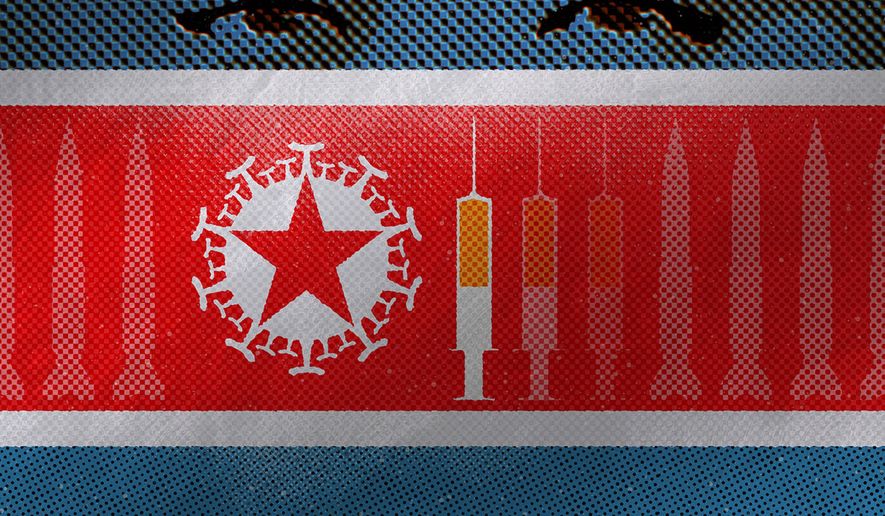OPINION:
From 1994 to 1998, between 1 and 3 million North Koreans reportedly died due to starvation, during a period known as the “arduous march.” Floods and droughts contributed to widespread starvation in a country of 22 million people. Government mismanagement of its public distribution system and systemic problems in the agricultural sector also contributed to this tragic loss of life.
In 1994 North Korea had just signed an agreement with the United States — the Agreed Framework — that halted the production of plutonium for nuclear weapons at its Yongbyon nuclear facility, in return for the construction of two Light Water Reactors — for civilian nuclear energy — in Kumho, North Korea. The Agreed Framework was successful in halting North Korea’s nascent nuclear weapons program until October 2002, when North Korea admitted to a visiting U.S. delegation that they had a covert program to enrich uranium.
In 2022, North Korea is a de facto nuclear weapons state, reportedly with 40 to 60 nuclear weapons that can be mated to ballistic missiles that can reach South Korea, Japan and the United States.
When the COVID-19 pandemic got the attention of the international community in January 2020, North Korea immediately closed its 880-mile border with China and isolated the country from the outside world. All trade, economic and diplomatic contacts were halted, with North Korea claiming that there were no cases of COVID-19 in the country. North Korea rejected the United Nations offer to provide 3 million doses of China’s Sinovac vaccine and the Astra Zeneca vaccine, with North Korea’s leader, Kim Jong-un, reportedly saying vaccines weren’t necessary because the North had no cases of the virus.
On May 12, 2022, North Korea’s state media announced that 350,000 people were affected by an “obscure febrile disease,” with follow-on media pronouncements that 1.2 million people were affected and 560,000 were in quarantine with 50 deaths, stating clearly that this was a major national emergency. North Korean media reporting cited Mr. Kim’s emergency Politburo meeting on May 15 and the criticism of his cabinet and public health officials for “their irresponsible work attitude and organizing and executing ability.”
The situation in North Korea must be dire, given these recent public statements from Mr. Kim and state media. The outside world had a glimpse of these developments, however, when the Korean media in April 2021 reported that Mr. Kim, at a Korean Workers’ Party event, spoke about the need for North Korea to prepare to “wage another arduous march,” as the country encounters future difficulties.
Given this concern one year ago, it’s possible the April 25, 2022, military parade, on the 90th anniversary of the founding of the Korean people’s Revolutionary Army, that proudly displayed the North’s Hwasong-17 Intercontinental Ballistic Missile and other military hardware Mr. Kim wanted to display to his own people and the international community, contributed to spreading the coronavirus.
The U.N. recently reported that 42% of the Korean people are undernourished due to food insecurity. That’s a concerning statistic, especially in a country with a weak health care system that’s currently experiencing food shortages due mainly to drought and biting sanctions. The challenge for Mr. Kim will be his ability to address the spread of the virus and reports of pockets of starvation while, also, continuing to enhance his nuclear and ballistic missile programs.
South Korea’s recently elected President Yoon Suk-yeol announced on May 16, in a speech at the National Assembly, that his government is prepared to provide North Korea with COVID-19 vaccines, medical equipment and health personnel, to help the North in its battle with the ongoing coronavirus outbreak. Mr. Yoon said this and other related issues will be discussed with President Biden when he visits Seoul on May 21.
Given their close allied relationship, it’s logical to assume that Mr. Kim has reached out to China for medical assistance to address the spread of the coronavirus in North Korea. Indeed, the North is in dire need of COVID-19 vaccines and medical supplies, in addition to food aid — rice, wheat, potatoes and soybeans. This comes at a difficult time for China where COVID-19 has reemerged and resulted in the lockdown in Shanghai and other cities, adversely affecting the economy in a profound way.
Providing North Korea with the humanitarian assistance that reaches the people in need, in a country with a population of 25 million, is a moral imperative.
Hopefully, Mr. Kim will refrain from additional missile launches and an expected seventh nuclear test as the leaders in China, South Korea and the United States, bilaterally and at the United Nations Security Council discuss issues dealing with North Korea and the spread of COVID-19 in a country with significant food shortages and a weak health care system.
The potential for instability in a nuclear North Korea must be of concern to all nations, but especially neighboring countries. For that and other obvious reasons, China should use its close allied relationship with North Korea to get Mr. Kim to understand that halting further nuclear proliferation and returning to negotiations will benefit North Korea, now and in the future.
• Joseph R. DeTrani is the former special envoy for negotiations with North Korea and the former director of the National Counterproliferation Center. The views are the author’s and not any government agency or department.




Please read our comment policy before commenting.